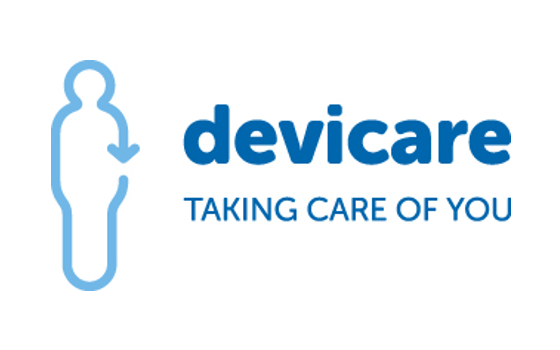 Devicare, a company specializing in innovative medical devices for chronic home care patients under Remote Patient Monitoring (RPM), has closed out a seed round of 3 million euros. This funding will be used to consolidate the launch of clinical studies of two of Devicare's main product lines on the Spanish market: Lit-Contro l® for prevention and self-management of recurring urinary diseases and Tao-Contro l® for self-management of patients who take oral anticoagulants (Sintrom®, Aldocumar ®, etc.).
Devicare, a company specializing in innovative medical devices for chronic home care patients under Remote Patient Monitoring (RPM), has closed out a seed round of 3 million euros. This funding will be used to consolidate the launch of clinical studies of two of Devicare's main product lines on the Spanish market: Lit-Contro l® for prevention and self-management of recurring urinary diseases and Tao-Contro l® for self-management of patients who take oral anticoagulants (Sintrom®, Aldocumar ®, etc.).
The round opened in 2016 with the entrance of the investment holding company EMESA Corporación Empresarial (a company of Emilio Cuatrecasas). Different Family Offices and corporate partners were later incorporated, such as Juan Knuth (Palex Medical), the Gaya family (Eladiet), the Xiol family (Peroxfarma), the Serra family (Boyser), among others, in addition to employees of the company.
"This profile of investors is without a doubt a large strategic contribution to our company's growth", says the founder and CEO of Devicare, Rosendo Garganta, who also coordinates the commission on medical technology of CataloniaBio. It is a growth which is connected to Remote Patient Monitoring (RPM). In 2016, according to data by the Berg Insight, the global RPM market grew by 44% and it is estimated that the number of patients monitored will reach 50.2 million in the next 4 years, of which 25.2 million will be connected to home medical devices such as the ones made by Devicare.
"We are convinced that this is the way to improve healthcare management and the quality of life for patients who suffer from chronic diseases," explains Xavier Peris, sales and marketing director at Devicare. For example, urologic diseases (lithiasis, infection, overactive bladder, painful bladder syndrome, interstitial cystitis, calcification of urinary catheters...) are already the second cause of primary care visits in Europe.
Devicare's devices enable a chronic patient to more consistently control their condition from their home without losing contact with their doctor. "We are talking about the 4 Ps of medicine: Preventing, Predicting, Personalizing and Participating. Health care centers are becoming decentralized," say both Garganta and Peris. Furthermore, the ENISA Entrepreneurs line of credit of the National Innovation Company (ENISA) recently granted Devicare a loan of 270,000 euros. Since the company was founded, Devicare has raised a total of 4.5 million euros.
For further information, please visit:
http://www.devicare.com/en/
About Devicare
Devicare is a company specialized in the development, manufacture and remote management of innovative medical devices for the home care of chronic patients. These solutions are developed
under the concept of Remote Patient Monitoring (RPM) in order to enable the patient to actively participate in the monitoring of their disease with the use of the devices. These products are placed
on the market through agreements with pharmaceutical companies.
Devicare’s headquarters is located at the UAB Research Park, in Cerdanyola del Vallès, near Barcelona (Spain). In 2017, the company invoiced €1.1 million. It has a staff of 20 professionals.
About Lit-Control® for recurrent urinary diseases
Devicare has been a pioneer in developing a domiciliary method for the self-management of frequent urological pathologies called Lit-Contro l®. This method is made up by the Lit-Control® pH Meter medical device and the Lit-Control® pH Up and Lit-Control® pH Down food supplements. Lit-Control® enables patients to monitor and control their urine pH in a simple, accurate and reliable way, thereby preventing, treating and/or avoiding the recurrence of a wide range of urological disorders. On the other hand, it offers doctors greater possibilities for monitoring and controlling patients, as well as greater adherence and treatment effectiveness.
Tao-Control® for anticoagulated patients
Tao-control® is the first service that enables patients taking oral anticoagulants (anti-vitamin K such as Sintrom® or Aldocumar®) to self-manage INR levels from their own home (always under their
doctor’s supervision). It reduces mortality by up to 63% and associated complications by up to 50%. Currently Tao-Control® is offered to patients at 39 euros a month (including a state-of-the-art
coagulometer and all of the necessary materials to be able do self-management on a weekly basis, training, monitoring, and also provides access to records). In Spain alone, there are 800,000
patients who require this type of care.